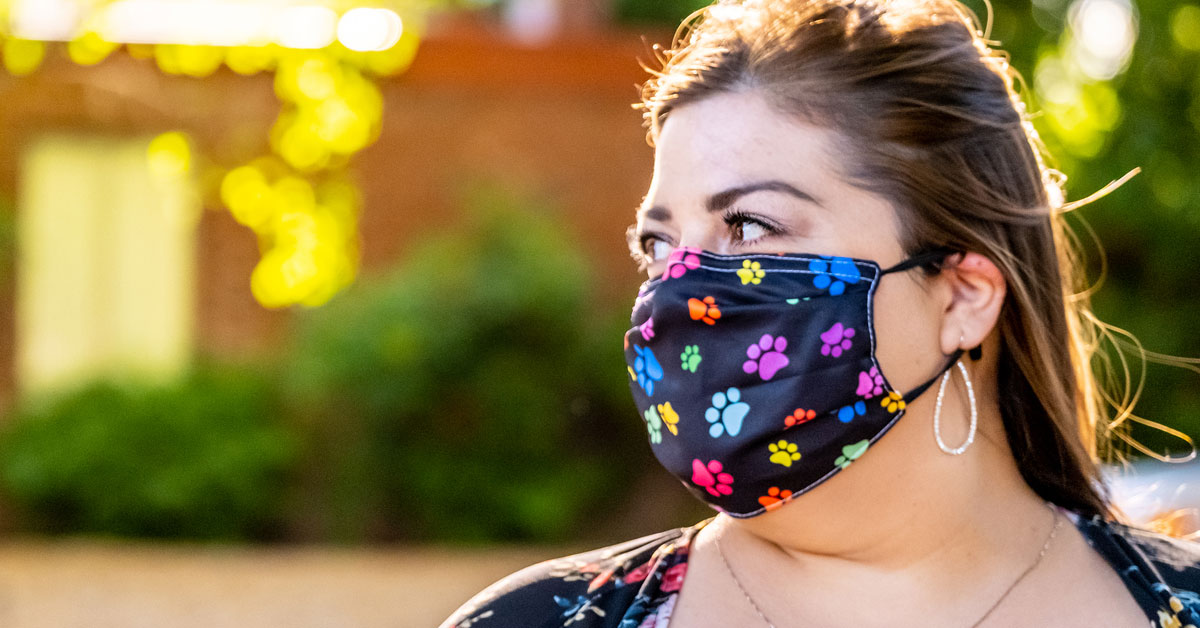COVID19 continues to remain a deadly infectious disease that is known to cause respiratory infections in humans. The virus was unknown until December 2019, when a large number of pneumonia cases were outbreak without any identified reason in Wuhan, China. This new coronavirus can infect anyone, but as the research starts to boom about the facts and figures of this virus, it gets clear that some people are highly vulnerable to this life-threatening disease as compared to others.
For public health medical reasons, the researchers from all over the world conclude that…
Age can be the main factor, as older people are at high risk to develop severe uncontrollable symptoms and may die if they suffer from coronavirus.
People who are already fighting against a disease such as heart disease, diabetes, cancer, and blood pressure are more vulnerable to develop this virus.
Obese people are no exception, if body mass index (BMI) is 30 or above, one may at high risk of severe threat from COVID-19.
How Obesity increases the risk of COVID-19
The research that obese people are at high risk to get COVID-19 starts when a person dies in the University of Vermont Medical Center, he was young and healthy without any other underlying disease but he had severe obesity.
According to research published in Obesity Reviews shows the data of 399,000 patients’ pooled analysis concludes that people with obesity were at greater risk for severe acute respiratory syndrome coronavirus 2 (SARS‐CoV‐2); 113% for hospitalization;74% for ICU admission and 48% more likely to die.
Also Read: Top 10 Best Weight Loss Clinics In New Delhi, India
The association between obesity and COVID‐19 prognosis starts with mechanics:
Obese people have extra fat on the abdomen which pushes the diaphragm which induces more pressure on the lungs and limits the airflow. When the lungs volume reduces, the lower lobes of the lungs may collapse leaving the more blood flow for oxygenation in lower lobes than the upper one.
For obese people, the endothelial cells become weak and do not regulate the blood pressure which leads to inflammatory disorders and inhibits blood clotting. COVID-19 primarily damages the cell that transfers oxygen to the blood. These damaged cells cause acute lung failure, kidney damage, and blood clots in the capillaries of the lungs.
According to a nutritional scientist at Fairfield University, the immunity of obese people is quite weaker than a healthy individual; the organs such as bone marrow, thymus, and spleen which are responsible to produce and restore immune cells become weaker as the fat cell starts to filter out through and unable to protect the body from attacking viruses.
Cytokines, tiny chemical messengers may get triggered through the inflammation produce by fat cells results in low-grade chronic inflammation in obese people and putting them at high risk to catch the virus easily.
How obese person protect himself from COVID-19
One should be careful and taking precautions to keep healthy and strong, but the obese people and those who are suffering from a severe illness should be more cautious. Keep yourself healthy and save by following these tips:
Take Precautions to Protect Yourself
As no vaccine has been discovered for COVID-19 to date, the best way to avoid exposure is to prevent it by different means.
Keeping a distance of 6-feet with others and avoid large gatherings and events.
Wash your hands properly for about 20 seconds after any contact in the public area.
Wearing a mask and cover your mouth and nose when around others. Always sneeze inside of your elbow and do not spit.
Maintain the social distancing measurements.
Always clean and disinfect the surfaces you are in contact with frequently such as doorknobs, handles, phone, keys, switches, and desks.
Manage the Underlying Health Conditions
The obese people with underlying health conditions also have chances to make a full recovery from this life-threatening virus. The increased research about this virus, however, shows that people with diabetes, cardiovascular disease, and poor lungs condition are at high risk of developing severe complications. Therefore, there are several precautionary measurements you have to follow with practicing social distancing and other hygiene measures. Make sure to take all the medications required to manage the underlying health issues.
Diabetes is one of the most life-threatening diseases and a person is at high risk to get the infection easily. The high levels of sugar in your blood weakens the white blood cells, with time these white cells lose the ability to fight against any infection and prone your body to catch COVID-19. Make sure to take your medication properly and check the insulin frequently to maintain the sugar levels in the optimal range. By cutting rich foods in carbohydrates from your diet and an increased physical activity helps you to boost immunity and fight against coronavirus.
Heart disease is another underlying disease taken into account to manage the risk of getting infected. High cholesterol and high blood pressure decrease the performance of the heart to pump and regulate the blood throughout the body. Therefore, a healthy diet and lifestyle with proper medication help you confront viruses.
The obese people are highly prone to chronic obstructive pulmonary disease (COPD) and other breathing problems such as asthma due to the extra pressure on the lungs from fat around the abdomen. Therefore, do not involve in any activity that triggers the asthma attack or any respiratory infections and keep using your preventer inhaler when needed.
Boost your immunity
The complicated immune system in obese people should be strong enough to fight against infections and diseases. Here are listed a few lifestyle practices that increase your immunity and prevent you from catching any infection.
- First, a healthy diet is an important factor to boost your immune system. Make sure to get enough nutrients in your diets such as vitamins E, C, and B6. Besides, a well-balanced diet including fruits, vegetables, healthy fat, and proteins can efficiently boost your energy and immunity.
Second, whether you are an old fellow or young but if you are suffering from obesity, physical activity plays an important role to keep you healthy. A simple 10 minutes workout at home, yoga, or even 30 minutes walk can stay you active and boost immunity.
Third, keep hydrated throughout the day. The recommended water intake is about 8-10 glasses. Your body is continuously losing water even if you are sweating or not. Being hydrated increases the lymph, a fluid that carries the cells to fight against infections. Water is considered as a potential secret weapon to enhance overall immunity.
Fourth, the most important factor and one of the reasons for obesity if not getting enough i.e. sleep. Studies reveal that people are more prone to viruses and infection if their sleeping patterns are irregular. Moreover, many essential cells can fight against infection when you are asleep. Take a good 8 hours of sleep every day and keep healthy and active.
Last but not least, manage your stress levels. The stress is different for everyone and it comes with severe anxiety which leads to depression and ultimately suppresses your immunity. The stress can be reduced by involving in different activities such as mediation, exercise, prayer, and yoga.
Conclusion
An obese person is at high risk to develop infection and viruses and should be more cautious. Wear masks in public, wash hands frequently, and avoid large gatherings.
A healthy diet and lifestyle with regular exercise reduce the chances of developing COVID-19 symptoms.
However, losing some weight can improve metabolic activity and helps you move towards a healthy life.
Also Watch:

























[…] Are Overweight People Prone To Corona? […]
[…] Are Overweight People Prone To Corona? Facebook Twitter Pinterest WhatsApp Previous articlePledge To Combat Cancer Continues This World Cancer Day 2021 Dr AngelicaSpecialization in food sciences and technology. Firm believer in "He who takes medicine and neglects diets, wastes the skills of a physician." Passionate writer and columnist for past more than a decade. […]